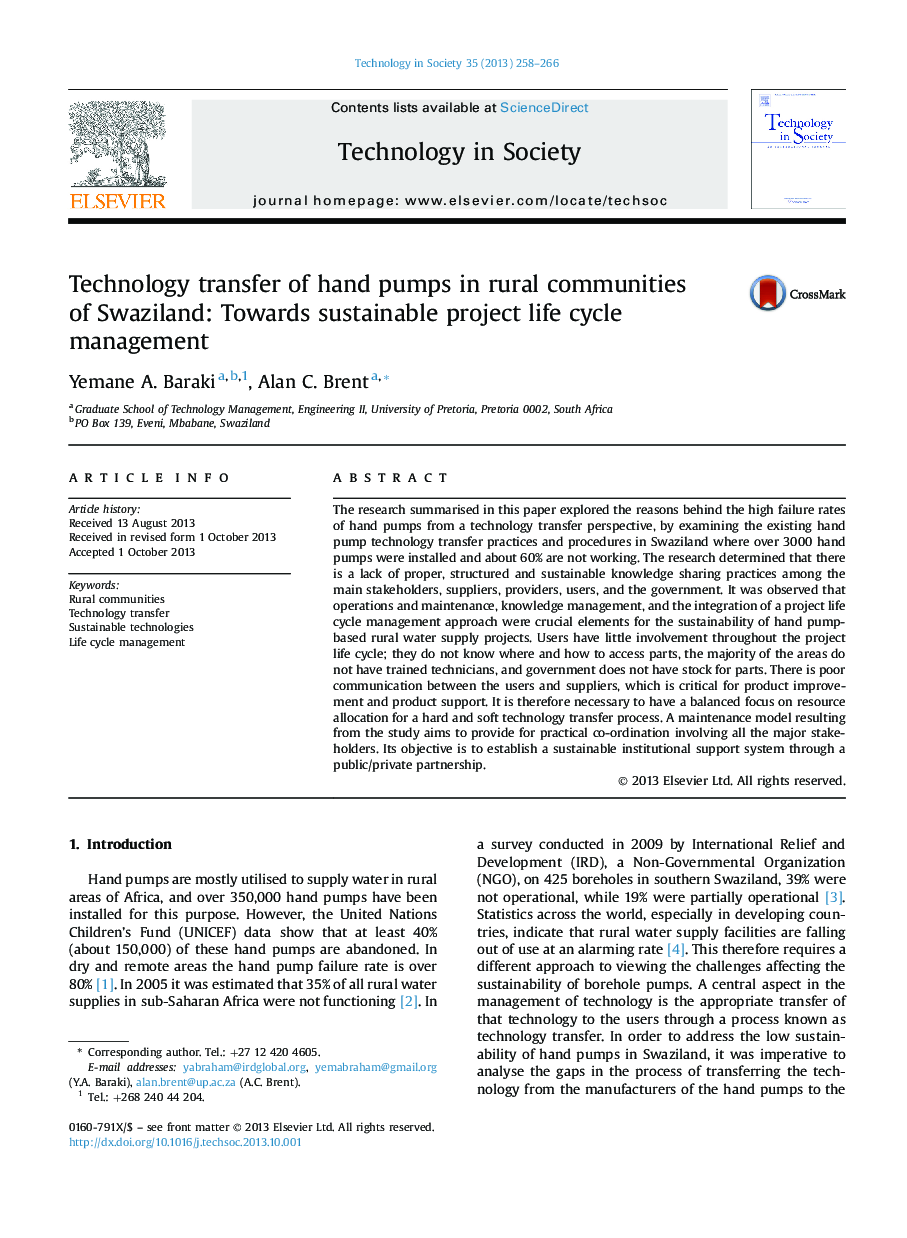| Article ID | Journal | Published Year | Pages | File Type |
|---|---|---|---|---|
| 375199 | Technology in Society | 2013 | 9 Pages |
•Technology transfer processes have been investigated in the context of hand pumps in Swaziland.•It is shown that a flexible hand pump technology standardization policy is required.•It is necessary to have a balanced focus on the hard and soft technology transfer processes.•It is necessary for the Government to clearly define the hand pump technology transfer process.
The research summarised in this paper explored the reasons behind the high failure rates of hand pumps from a technology transfer perspective, by examining the existing hand pump technology transfer practices and procedures in Swaziland where over 3000 hand pumps were installed and about 60% are not working. The research determined that there is a lack of proper, structured and sustainable knowledge sharing practices among the main stakeholders, suppliers, providers, users, and the government. It was observed that operations and maintenance, knowledge management, and the integration of a project life cycle management approach were crucial elements for the sustainability of hand pump-based rural water supply projects. Users have little involvement throughout the project life cycle; they do not know where and how to access parts, the majority of the areas do not have trained technicians, and government does not have stock for parts. There is poor communication between the users and suppliers, which is critical for product improvement and product support. It is therefore necessary to have a balanced focus on resource allocation for a hard and soft technology transfer process. A maintenance model resulting from the study aims to provide for practical co-ordination involving all the major stakeholders. Its objective is to establish a sustainable institutional support system through a public/private partnership.
